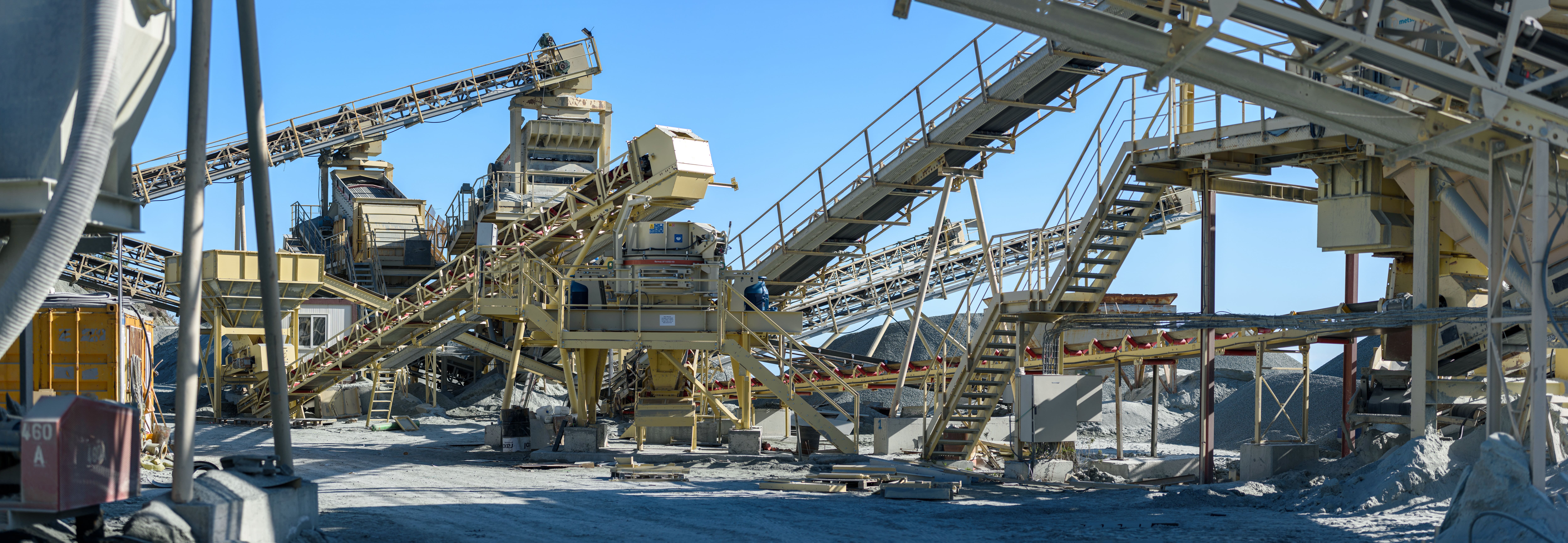Governance Assurance & Capital Stewardship
Building Africa’s future: The essential role of quarrying in infrastructure development
As Africa embarks on an unprecedented wave of infrastructure growth, TacminMadini has drawn on the extensive experience of Tacmin Group, which has delivered engineering, mining, and infrastructure solutions across many African countries since 1996. Quarrying materials like aggregates, limestone, and clay are essential not only for building roads, housing, energy plants, and water systems but also for advancing Environmental, Social, and Governance (ESG) values. Our approach prioritizes environmentally conscious sourcing, community-centered project design, and strict governance standards, ensuring that infrastructure projects drive both economic growth and sustainable development. Here are some key insights into how quarrying supports transformative projects across Africa in connectivity, resilience, and opportunity.

Connecting 1.3 billion people through roads
Connecting over 1.3 billion people through robust road networks is a primary focus in Africa, with projects like the Trans-African Highway aiming to span 56,683 kilometers and connect more than 30 major cities. Roads built on reliable quarrying materials, particularly durable aggregates, withstand heavy traffic and diverse weather conditions, supporting not only transportation but also economic growth. In West Africa, for example, the construction of nearly 20,000 kilometers of roads annually is helping to boost trade and mobility. Every kilometer of road constructed generates approximately 200 jobs, making road infrastructure a key driver of social and economic impact.
Meeting the $1 trillion housing demand
Urbanization across Africa is accelerating, creating a housing demand valued at over $1 trillion by 2040. With an expected urban population of 1.5 billion by 2050, the continent needs 4 million new housing units each year. Cement, produced from quarrying essentials like limestone and clay, is at the heart of affordable, durable housing solutions. Demand for housing materials is particularly strong in East Africa, where annual growth exceeds 15%. Africa’s cement consumption is expanding at an annual rate of 7%—three times the global average—driven by rapid urbanization and supported by the availability of local quarrying products.
Powering Africa with local materials
Africa’s energy needs are also immense, with initiatives like the Grand Ethiopian Renaissance Dam demonstrating the demand for large-scale quarrying support. This dam, which will generate over 6,450 MW upon completion, required more than 10 million tons of concrete and aggregates. As renewable energy projects gain momentum, quarrying materials play a vital role in creating stable foundations for solar, hydro, and wind plants across the continent. For instance, South Africa’s Solar Capital De Aar 3 project uses 50,000 tons of concrete for foundation work, reducing coal dependency. The annual investment required for Africa’s energy infrastructure is projected at $40 billion, with quarrying products forming a core component of both renewable and hydroelectric projects.
Laying tracks and expanding ports for trade
Expanded railways and ports are pivotal for trade growth. East Africa’s Standard Gauge Railway projects in Kenya, Tanzania, and Uganda are set to cover over 1,000 kilometers, with each kilometer requiring approximately 20,000 tons of aggregates. Port expansions in Mombasa, Durban, and Lagos, which require millions of tons of aggregates and cement, are essential for accommodating growing trade volumes. With intra-African trade projected to increase by 52% by 2030, quarrying materials are integral to the infrastructure enabling Africa’s economic integration and trade expansion.
Improving access to clean water
Clean water access is also central to infrastructure development, with Africa requiring $20 billion annually for water infrastructure improvements. New pipelines and reservoirs, built with robust quarrying products like cement and aggregates, are essential for safe and durable water access. In Nigeria, for example, the Lagos Water Corporation Pipeline Expansion uses over 500,000 tons of quarrying materials to improve water security for 12 million residents.
Turnkey quarrying: Supporting Africa’s infrastructure vision
Africa’s infrastructure transformation is built on essential quarrying materials that underpin roads, housing, energy, and water systems crucial for resilient growth. TacminMadini’s turnkey quarrying solutions provide end-to-end support—from initial feasibility and material analysis to equipment provision, management, maintenance and operation—ensuring that each project meets Africa’s technical, economic, and ESG priorities. By embedding Environmental, Social, and Governance (ESG) principles into every stage, we help clients achieve not only operational efficiency but also sustainability and community impact. Our solutions are tailored to align with Africa’s vision for connected, durable, and future-ready infrastructure, laying a strong foundation for an interconnected and sustainable continent.

Categories
Tags
Recent Posts





